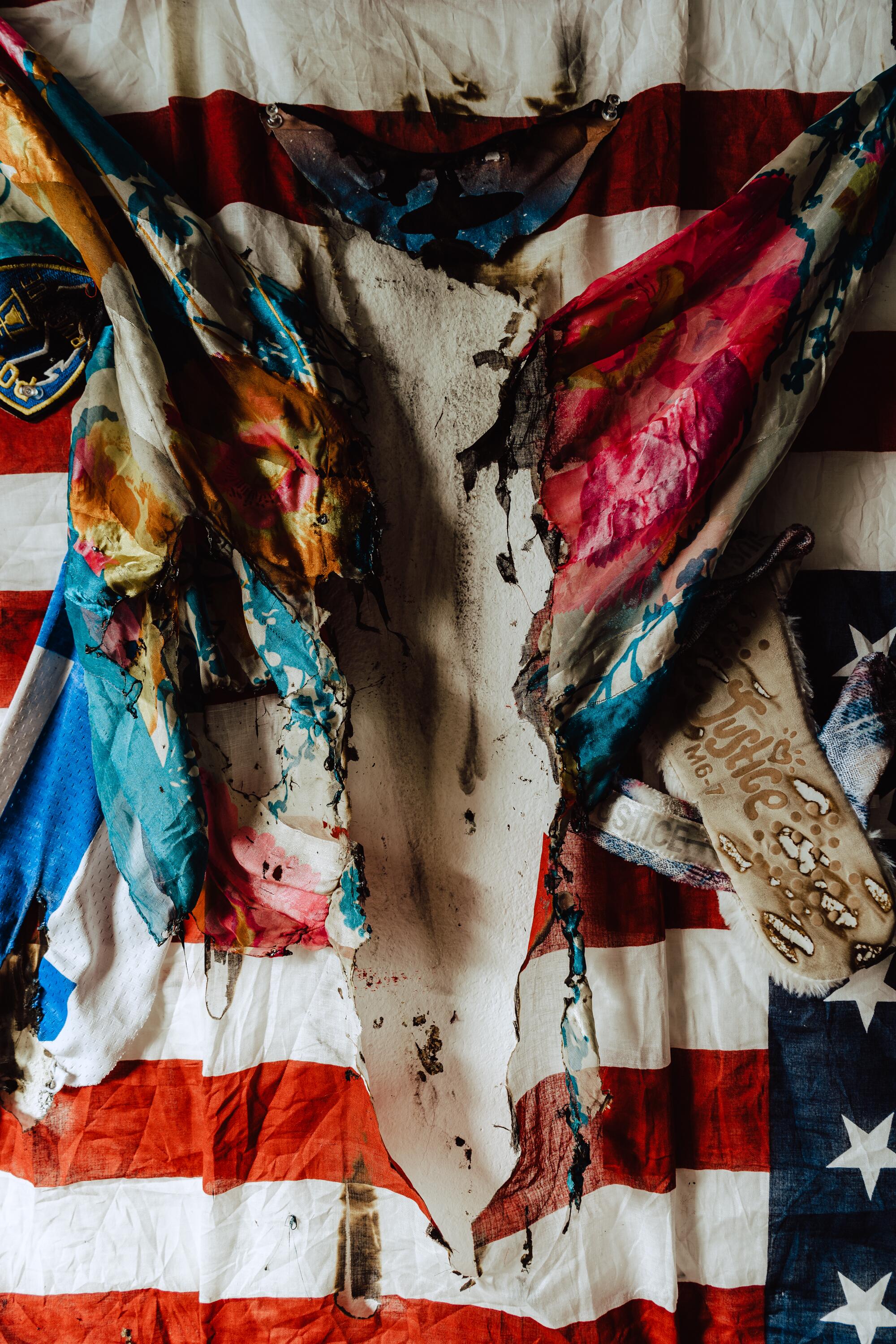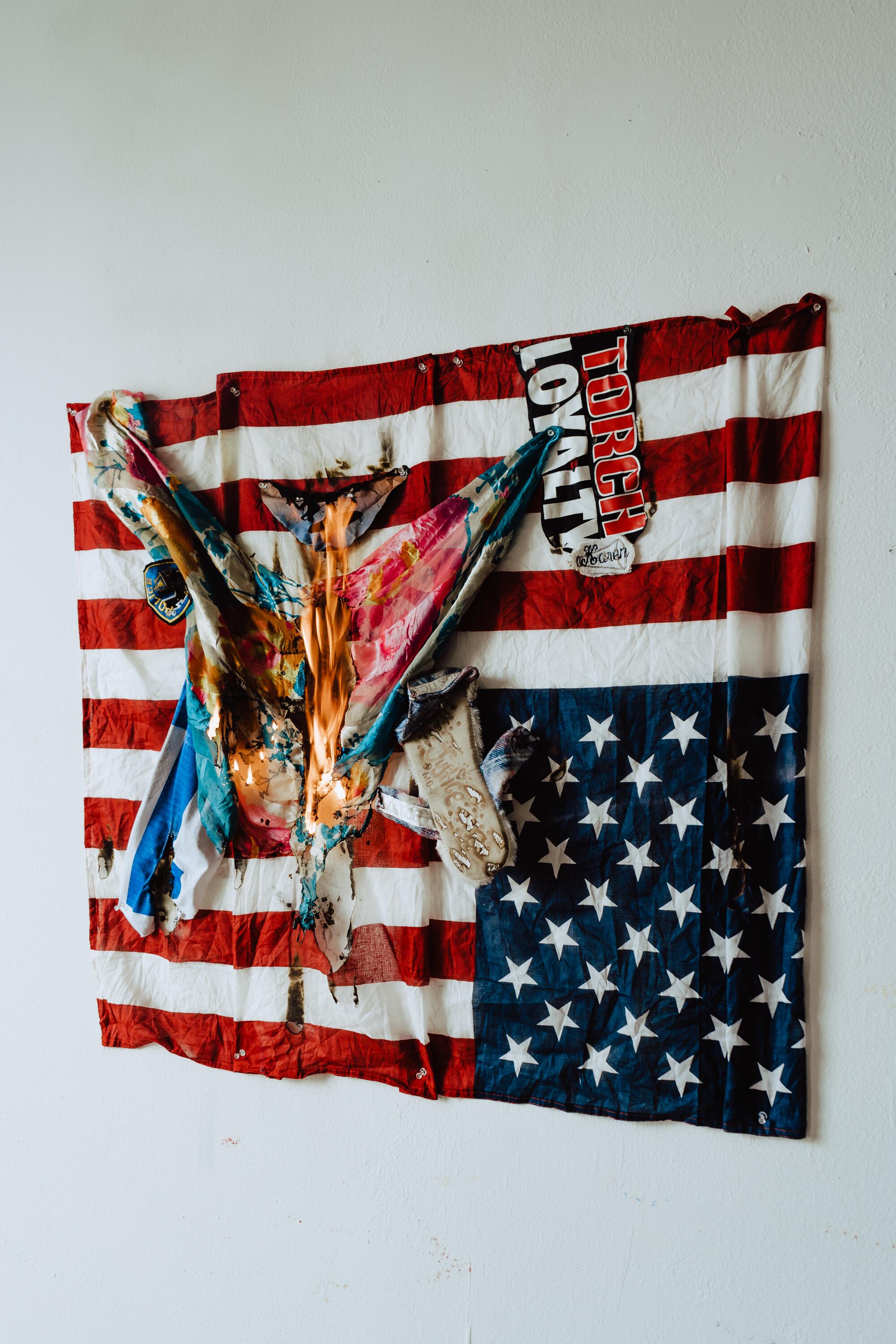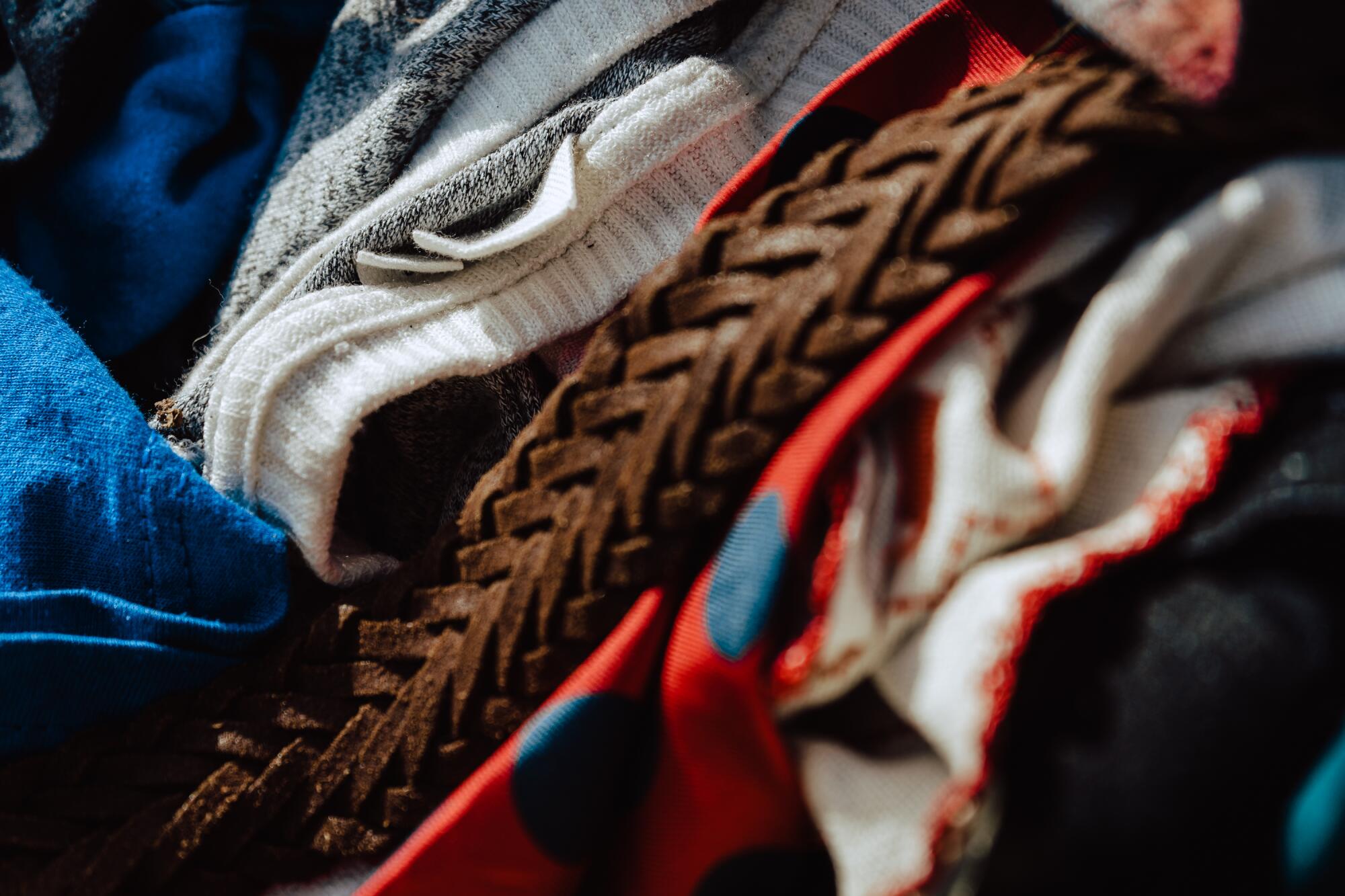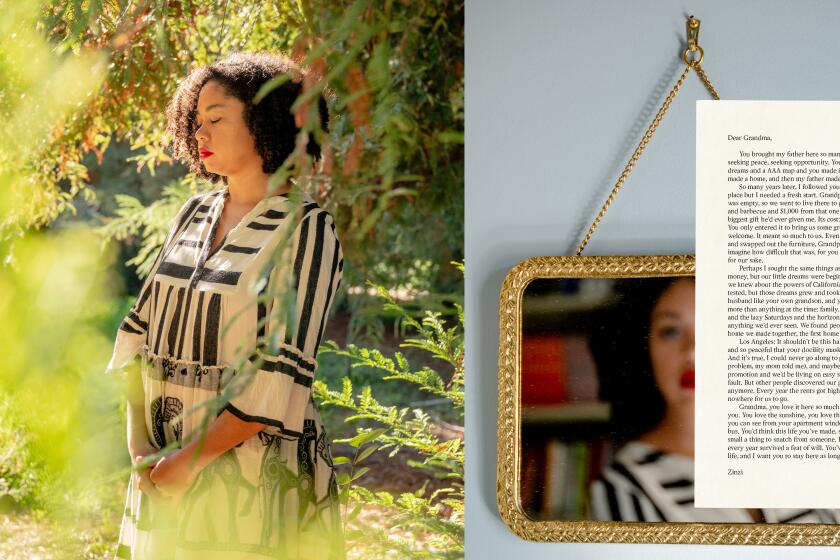
This story is part of Image issue 7, “Survival,” a collective vision for the L.A. of our dreams. See the full package here.
How do we recycle a failing democracy? Perhaps one should start with the physical symbol of that democracy: its flag. When a flag becomes eroded — its fragility revealed, its ideals of democracy undermined — it must be recognized as such and recycled appropriately.
There are specific protocols for recycling the United States flag. According to the United States Flag Code, “The Flag, when it it is in such condition that it is no longer a fitting emblem for display, should be destroyed in a dignified way, preferably by burning.”

One shall make a determination that the Flag is a hazardous symbol — “no longer a fitting emblem for display” — when it exhibits one or more of the following characteristics: empty patriotism, nationalism, the attack on women’s reproductive rights, the failure to pass protections of voting rights, the corrosive forces of money in politics, the destruction of public education, an attempted coup on the nation’s capital, mass incarceration, police brutality, the destruction of the environment, inhumane border policies, among other unfurling ills. When it is in such a condition that it is no longer a fitting emblem for democracy, it should be given this “dignified” treatment.
Inside Issue 7: Survival
Writer Rembert Browne investigates the mysterious ailments that just showed up one day
Writer Zinzi Clemmons wants you to be able to stay in the city as long as you want
Artist Muna Malik recycles the emblem of a failed democracy
Journalist Cerise Castle pays tribute to the city’s forgotten site of refuge and devastation
Actor Marque Richardson lets us in on the only 20-year-plan that matters
Items of personal significance are not always the easiest to part ways with. Our identities are so tightly intertwined with our brands. Consumer choice is often mistaken for freedom. Liberty is thought to be accessible by buying the right items. The act of discarding and recycling items opens up the possibility that perhaps freedom is the ability to revise and revisit, to renew and refurbish that which no longer serves us. The U.S. flag is a secondhand symbol, a cloth of memorabilia; its myths have always been recycled and repurposed — it is a souvenir for invented traditions.


Such souvenirs can be found in many places. Among the $1 items found at the weekly Sunday sale at Jet Rag, I encountered the remains of ratted paraphernalia and uniforms distinct to the American ideology of waste. I thought: What if we recycled these remains of Americana in a dignified way? Recycling the goods as art offered an opportunity to rethink its original use and messaging. It afforded me the opportunity to shift focus, to deliberate rather than consume.
Muna Malik is a multidisciplinary artist based in Los Angeles. Using painting, sculpture and photography, she creates bold and poetic narratives that abstract from contemporary issues, particularly those concerning race, gender and xenophobia. She also explores the complexities and entanglements between individuals and communities. Her practice often involves using abstraction to explore the variations and nuances of identity. Joal Stein contributed to this statement.










